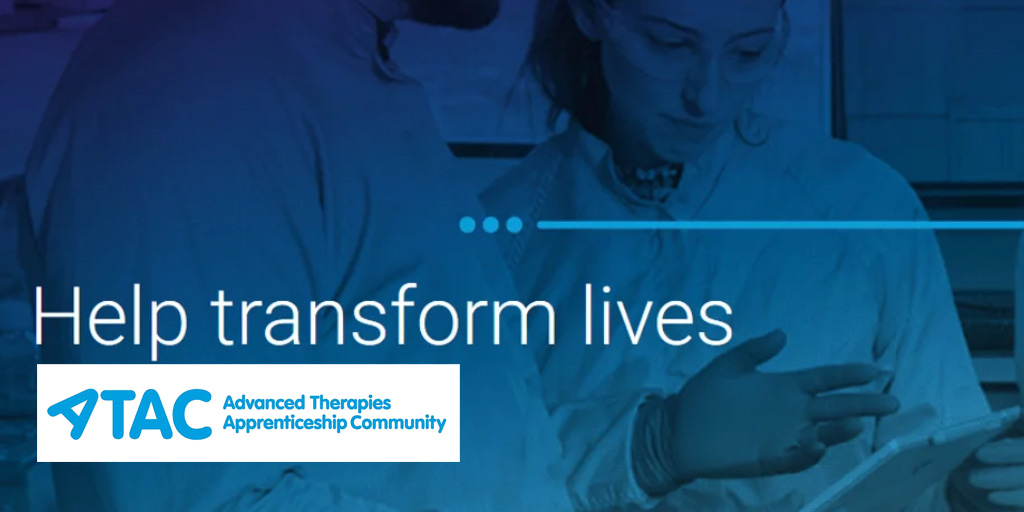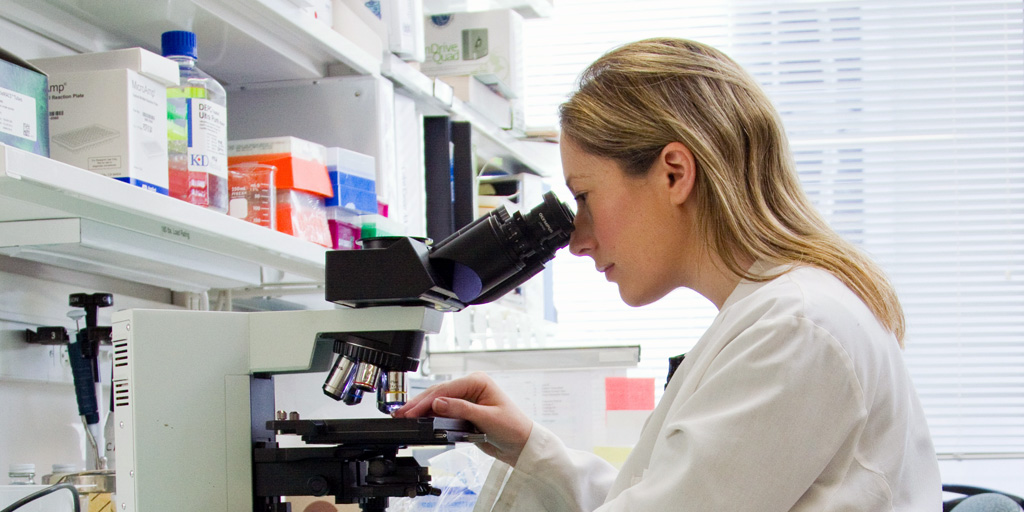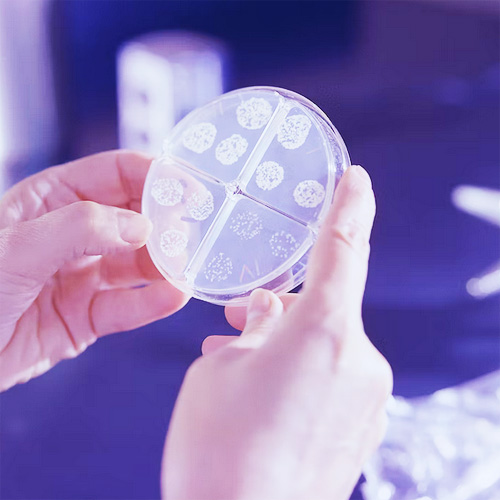Laboratory Technician careers guide & job profile
Lab technician jobs are entry routes to a world of science wonder. Expand your career horizons!
How much money can you earn as a lab technician?
These LMI Job Trends give you a sneak peek of how much you could earn starting out for this career, and how much your salary could grow with experience.
Average salary for lab technician jobs
Recent labour market information says you can earn £17,000 – £30,000 a year on average as a lab technician in the UK.
Your starting salary can vary because of factors like level of experience, training, or location. Your salary will increase over time as you build skills, knowledge and experience.
Health & Science Career FAQs
Is there something you’d like to know about health and science careers? Maybe we can help!
Skills you need to become a lab technician
Useful skills to put in your CV:
- Positive attitude and energy
- A willingness to learn
- Self-management skills – you can be trusted to carry out tasks to your best ability without someone watching you the whole time
- Accuracy and attention to detail
Top Skills-boosting Tips
Focus on the little details, because the little details are important! They might come in the form of checking numbers, or always following the correct procedure, or even just being clean and careful in a lab environment. Those little details say GOODBYE to lab chaos and HELLO to valid experiments.
How Do You Get These Skills?
Vocational qualifications and work experience will help you build these skills over time.
What qualifications & training do you need for lab technician jobs and careers?
School, college and training
Different lab technician jobs have different requirements.
Some employers – like the NHS – offer lab technician roles where you won’t need any formal qualifications, for instance if you want to work as an NHS medical laboratory assistant.
Many employers are looking for people with around five GCSEs or S grades (9-4/A*-C) including science, maths, English and potentially another science or technology related subject.
Some roles may be open to those with higher level qualifications like A-levels or H grades, HNDs or science degrees.
Vocational Qualifications
As an alternative to A-levels, you can study a vocational course like a BTEC or T-Level. From there, you could think about doing an HNC/HND or foundation degree in one of the following subjects:
- applied life sciences
- applied biological sciences
- biomedical science
- chemical / materials engineering (e.g. chemical process technology)
Did you know you can do a Level 3 NVQ Diploma in Laboratory Science?
T-Levels
T-Levels are a choice for learners after GCSEs alongside apprenticeships and A-levels. You can do a Level 3 Science T-Level that’s perfect to help you progress into becoming a lab technician. Your core subjects will cover health and safety, data, good scientific and clinical practice, and core science like the structure of cells, tissues and large molecules, genetics, microbiology and immunology. You can then cover what you’re personally interested in, from science methods to the ethics of science.
BTECs
As an alternative to A-Levels, you can do BTECs from the age of 16. If you’re aged 16 or over, you can do a wide range of science BTECs, from Level 2 (like the Level 2 Technical in Laboratory Science BTEC). You could search for laboratory technician apprenticeships which could result in a qualification like a Level 3 subsidiary BTEC diploma in applied science. It’s a great practical science qualification.
Apprenticeships
An apprenticeship is a scheme where you train while earning a starting salary.
With an apprenticeship (or advanced apprenticeship) you’ll have a paid job with an employer that includes structured training and learning. This training leads to an official qualification that’s recognised by employers as an industry standard.
You can get into this job through completing a relevant science apprenticeship. If you are interested in life sciences (like advanced therapies or working with cell and gene therapy) you could check out ATAC advanced therapies apprenticships who can help you get life sciences apprenticeships from Level 3 upwards after you leave school. You can also search for science apprenticeships that match your field of interest and include practical work in a laboratory.
Higher laboratory technician apprenticeships are also offered, and may be most suitable for those who have several A-levels or the equivalent, with ideally at least one and often preferably two A-levels in a science-related subject. Again, ATAC apprenticships can help.
University degrees and graduates
If you are planning to go to university, the following foundation degree and degree subjects may be useful to a health or science career involving laboratory work:
- biology
- biomedical science
- chemistry
- environmental science
- forensic science
- materials science
- pharmacy
- physics
To get a university place, you may need 5 GCSEs at grades 9 to 4 (A* to C), or equivalent, including English, maths and science. On top of that, you may need 3 A levels or equivalent, often including at least one science.
UCAS has more information on degree courses and entry requirements.
Some courses include a year in industry – or you could organise your own work placement in a health or science company. You might also be able to join a company’s graduate trainee scheme if you have a degree in a relevant subject.
ATAC Advanced Therapies Apprenticeships

Get into life sciences careers after school with Level 3+ ATAC apprenticeships in advanced therapies!
Advanced Therapies ApprenticeshipsCareer Progression
With time and experience you could increase your level of responsibility and salary, becoming a team leader or lab supervisor. You could specialise in more complex analysis and research, and move on to be a research technician.
Numerous science and health apprenticeships could take you in the direction you want to go.
You could also explore degree apprenticeships, where you work for an employer and are trained at the same time for a degree related to your field of science – and you don’t have to pay for it.
What work experience do you need for lab technician Jobs?
Work Experience Tips
It can help you decide if this is the right career for you if you have previously done work experience in a health or science environment. You can seek opportunities with university research labs, hospital clinical labs, production or research labs in the world of industry, or in school and college science labs.
Examples of relevant work experience include:
- Work shadowing (even if it’s just for a day)
- Work placements in a company or organisation
- Work experience placements on a college or university course
If you’re a Year 12 student, you can apply for a Nuffield Research Placement. Over 1,000 students a year get the chance to work with scientists, mathematicians and engineers from all kinds of universities and organisations.
Work experience tipsVolunteering Tips
Employers may be impressed to see volunteering on your CV. It shows you have motivation, and are organised enough to take extra steps in life. Showing you have hobbies and interests related to science will help to show employers you are a great candidate for the job.
In addition, you may wish to explore volunteering in the healthcare sector to show your compassion for others and your understanding of health and safety needs around vulnerable people like the poorly or elderly.
If you’re still at school, one way to expand a range of skills related to science is to join a school STEM club.
Volunteering tipsWhat does a lab technician do?
Where could you work?
The laboratory you work in could be anywhere. You could be working for the Government, for the NHS, for schools and colleges, in the manufacturing and service industries, or in the world of forensic science.
The nature of your work might change according to how much knowledge and experience you’ve already got.
Example daily job responsibilities
- Setting up experiments and research studies
- Carrying out risk assessments for health and safety needs
- Collecting samples and analysing their contents
- Preparing specimens, solutions or cultures
- Recording data and findings
- Ordering stock for the lab
- Disposing safely of waste products or chemicals
- Keeping equipment in the lab clean and safe to use
How to find laboratory technician jobs
To find jobs for young people in this role, search on jobs boards for early career roles and opportunities with these words in the title:
- Laboratory technician apprenticeships
- Technician scientist apprenticeships
- ATAC advanced therapies apprenticeships
- Junior laboratory technician jobs
- Assistant laboratory technician jobs
- Graduate laboratory technician jobs
These websites might be able to help you find design engineering experience or a role that’s a good fit for you:
- Find an Apprenticeship
- The Science Council
- NHS Careers
- Step into the NHS
- ABPI (The Association of the British Pharmaceutical Industry)
- WISE (Women Into Science, Engineering and Construction)
You can also take a look at our database of local opportunities to see if there are any relevant jobs, work placements, or careers events and workshops to help you get started.
Get Into Health and Science With Youth-Friendly Employers
These employers and organisations are here to help. They care about your potential and desire to learn, not just your qualifications and experience. They may be able to offer traineeships, apprenticeships, graduate schemes, first jobs, careers advice, wellbeing support and much more.
Health And Science Career Tips & Opportunities
Health And Science Career Guides
View job descriptions with average UK salary, useful qualifications and a variety of routes into this career.
-
Apprenticeships with Youth Friendly Employer ABP
-
Care Worker
-
Contact Lens Optician – ABDO Careers in Eyecare
-
Cosmetic Scientist
-
Dispensing Optician – ABDO Careers in Eyecare
-
Ecologist Careers
-
Eye Clinic Liaison Officer (ECLO) – ABDO Careers in Eyecare
-
Food Manufacturing Inspector Careers
-
Food Technologist Careers
See All Our Youth-Friendly Employers






































































YES! I Want More Free Careers Help...
So what are you waiting for? Grab your future.












































